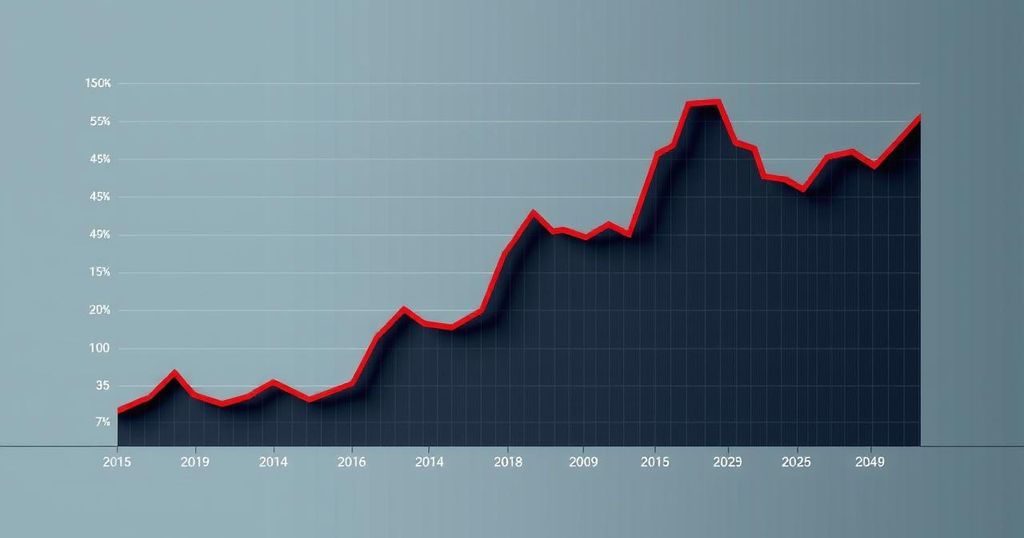Analysis of Tesla’s Recent Stock Decline and Market Challenges
Tesla’s stock has dropped significantly, erasing 91% of election rally gains and reaching its lowest level since November 2024 due to lower delivery forecasts and declining sales in key markets.
Tesla’s stock has recently experienced a significant decline, erasing 91% of its gains from the election rally and reaching its lowest valuation since November 2024. This downturn has been largely attributed to an analysis conducted by UBS analyst Joseph Spak, who lowered his first-quarter delivery estimates for the company, igniting concerns about Tesla’s ability to meet its sales targets, which in turn has led to a marked sell-off of shares.
The sales performance of Tesla reveals a concerning trend, particularly in key international markets. In China, sales have fallen by 49%, raising alarms about Tesla’s competitiveness against local electric vehicle (EV) competitors such as BYD. In France, Tesla’s sales decreased by 26%, mainly due to delays in the much-anticipated Model Y update. While Tesla continues to hold its ground in the U.S., burgeoning competition and shifting consumer preferences may pose significant challenges.
Additionally, Elon Musk’s political stance has raised questions about its impact on Tesla’s stock. Analysts’ perspectives on Tesla’s future vary. Some, like Adam Jonas from Morgan Stanley, maintain an optimistic outlook, citing the company’s strengths in artificial intelligence and robotics as potential long-term advantages. Others urge caution, pointing out that decreasing sales, production issues, and Musk’s controversial political involvement may undermine Tesla’s brand and contribute to further stock declines.
The current broader market context may also be influencing Tesla’s stock performance. On the same day Tesla’s stock dropped, the S&P 500 fell by 1.8%, and the Nasdaq Composite experienced a decline of 2.8%. These drops reflect a broader trend of significant sell-offs in tech stocks due to recession fears and ongoing trade tensions.
Despite these challenges, Tesla’s market capitalization remains substantial, currently valued at approximately $845 billion, which is higher than the combined market values of the next nine largest automakers. Therefore, the company must overcome production barriers, stabilize its sales particularly in crucial markets like China and Europe, and restore investor confidence amidst economic uncertainty.
In summary, Tesla’s stock plummet can be attributed to declining sales figures in major markets, notably China, as well as reduced delivery estimates from UBS. The political implications of Elon Musk’s public influence further complicate the situation, alongside broader market dynamics that exacerbate investor anxieties. While financial analysts remain divided in their outlook, Tesla’s high market valuation still positions it favorably compared to other automakers, contingent upon swift remedial actions from the company.
Original Source: m.economictimes.com




Post Comment